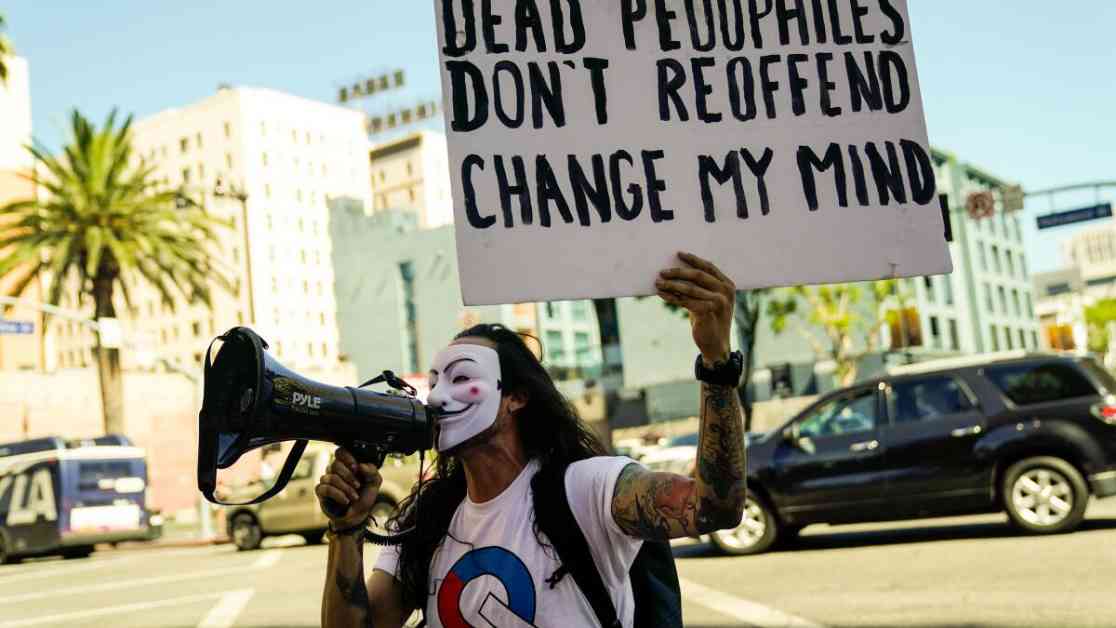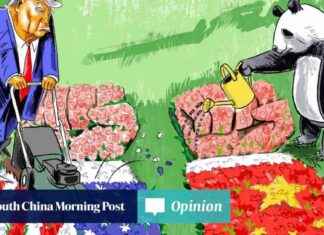AI vs Humans: The Battle Against Conspiracy Theories
The prevalence of conspiracy theories in today’s society is a concerning issue that affects roughly half of Americans. Despite efforts from fellow humans to coax believers out of their rabbit holes, success has been limited. However, recent research suggests that AI-powered chatbots may hold the key to effectively debunking conspiracy theories.
In a series of experiments reported in the journal Science, an artificial chatbot was able to make more than a quarter of people feel uncertain about their most cherished conspiracy beliefs. The average conversation lasted less than 8½ minutes, highlighting the efficiency of AI in challenging deeply held beliefs.
The study, led by psychologist Thomas Costello of American University, aimed to address the challenge of convincing conspiracy theorists to reconsider their beliefs. Costello and his colleagues found that the key to the chatbot’s success lay in its ability to tailor detailed, customized arguments for each participant. By addressing specific reasons for skepticism, the chatbot was able to effectively counter conspiracy theories with evidence-based arguments.
Subheadings:
The Power of AI in Debunking Conspiracy Theories
Challenging Deeply Held Beliefs with Evidence
Implications for Combating Misinformation
The Power of AI in Debunking Conspiracy Theories
The failure of traditional methods to sway conspiracy theorists has raised concerns about the prevalence of misinformation in a post-truth era. People’s beliefs in conspiracy theories often stem from a desire to make sense of a chaotic world or to find comfort in the idea of a secret society controlling events. However, the study suggests that the problem lies not in the persuasive power of facts, but in the ability to present the right combination of evidence to counter specific reasons for skepticism.
By leveraging AI technology, researchers were able to engage participants in meaningful conversations about their conspiracy beliefs. The chatbot’s ability to provide tailored arguments based on individual skepticism proved to be a game-changer in shifting beliefs. This approach highlights the potential of AI in challenging misinformation and promoting critical thinking.
Challenging Deeply Held Beliefs with Evidence
One of the key findings of the study was the chatbot’s ability to challenge deeply held beliefs with evidence-based arguments. Participants who engaged in conversations with the AI chatbot saw a significant decrease in their agreement with conspiracy theories. By presenting facts and addressing specific points of skepticism, the chatbot was able to create doubt in participants’ beliefs, leading to a shift in their perspectives.
The success of the chatbot in debunking conspiracy theories highlights the importance of evidence-based reasoning in combating misinformation. By providing individuals with accurate information and addressing their specific concerns, AI technology has the potential to foster critical thinking and promote a more informed society.
Implications for Combating Misinformation
The implications of the study extend beyond the realm of conspiracy theories, offering insights into the broader challenge of combating misinformation. The chatbot’s ability to engage participants in meaningful conversations and challenge their beliefs suggests a promising approach to addressing false information across various domains.
By leveraging AI technology to provide evidence-based arguments and tailored responses, researchers have demonstrated a scalable intervention to recalibrate misinformed beliefs. The success of the chatbot in shifting perspectives and reducing belief in conspiracy theories underscores the potential of AI in promoting critical thinking and combating misinformation.
In conclusion, the study’s findings highlight the power of AI in challenging deeply held beliefs and debunking conspiracy theories. By providing evidence-based arguments and tailored responses, AI technology has the potential to foster critical thinking and promote a more informed society. The implications of this research extend beyond conspiracy theories, offering insights into the broader challenge of combating misinformation and promoting evidence-based reasoning.



























